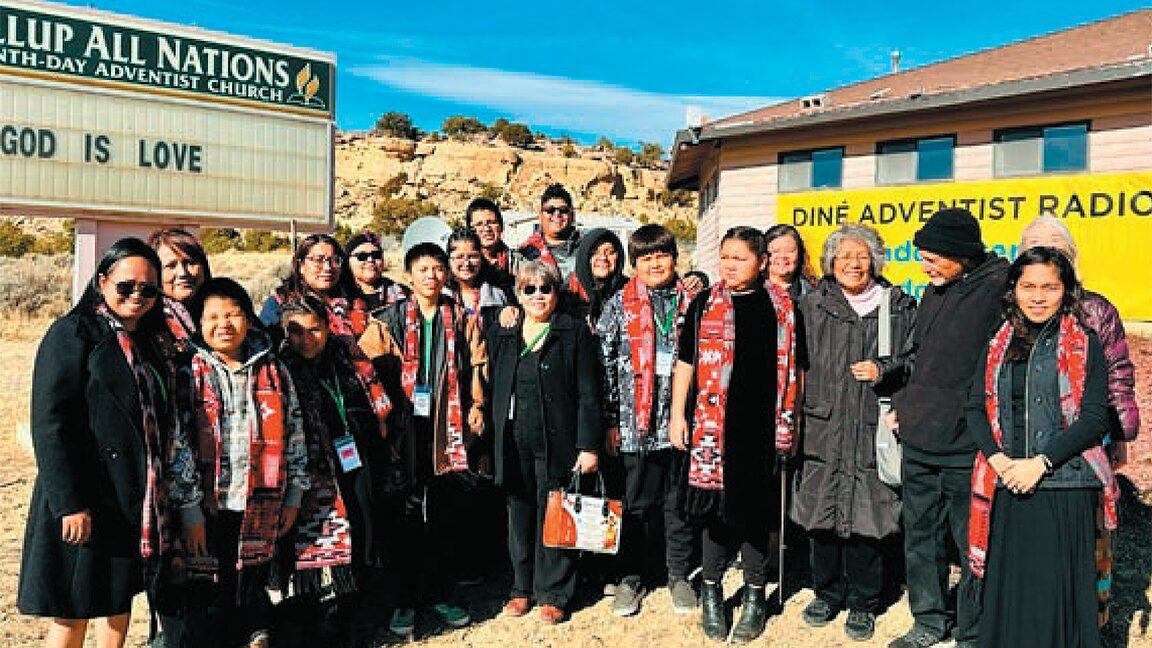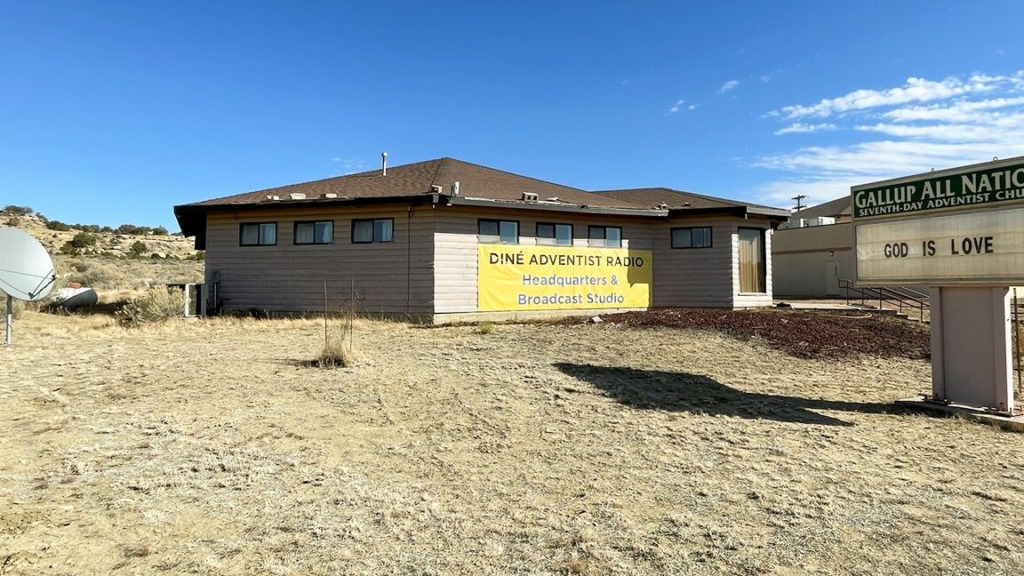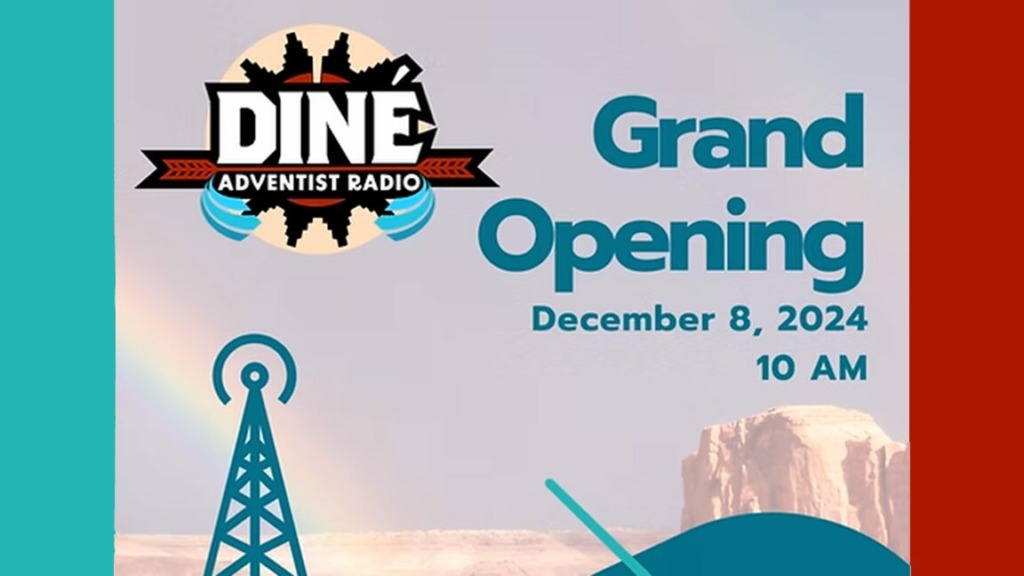By Lucas Lujan
It was a typical Sabbath morning of prayer and devotional, loading up the vehicle with my bag of electronics, Sabbath fellowship meal food, and a warm Chai tea along with my 40-ounce Stanley water bottle. I remember turning through the winding highway roads of US HW-24 talking to Jesus and reflecting on the last time I was able to attend a Sabbath morning worship service that I didn’t have to be up front on a platform, publicly speaking and proclaiming the everlasting gospel. I remembered to ask Jesus to empty me of anything that would prevent me from hearing from Him that particular Sabbath morning. I knew that He wanted to speak to me, and I wanted to hear from Him.
Now, before I lay on you the short, simple, yet mind-shifting message Jesus gave to me, I would like to share with you something I read online to confirm a rumor I had heard. Just like many other things in life, surveyors found a way to gather stats on the average number of churchgoers who actually remember the sermon or its main points just one week after the worship service sermon is preached. According to this AI-generated survey, typically five to ten percent of churchgoers are likely to remember the sermon one week after hearing it while most people forget the significant parts of the sermon within days. I would also like to say that I am not entirely sure how AI came up with these statistics, however, I am afraid that they may be close to accurate. It reminds me of a lesson I was being taught early in my lay pastor training through the Rocky Mountain Conference (RMC) in 2019 and 2020.
Is Jesus really speaking to us through the sermon and other portions of the worship service on Sabbath mornings? I am under the conviction that He does still desire to speak to us in these gatherings. However, just like the days of old, I also believe that it takes some preparation in cooperation with His Spirit to be able to hear His voice on the morning of Sabbath. Jesus said,
My sheep hear my voice… (John10:27, KJV).
Have you ever questioned yourself about hearing Jesus speak? I have, many times. And this is why I was silently speaking to Jesus that morning on my way up to Woodland Park from Colorado Springs in Colorado. I wanted Him to search me and remove anything in me that would hinder me from hearing His voice.
By the time I arrived, my heart felt a great expectation to hear Jesus. I was listening carefully to what the parishioners were saying to me while we greeted each other, I was listening to the announcements being read, I was listening to every word of opening, offering, and congregational prayer. I did not want to miss what Jesus wanted to say to me. I was expecting Him to speak to me.
While everything in the Worship service had Christian significance, there was nothing that was hitting me in an extraordinary way that I needed at that time. That is until the preacher stood up to preach. From the opening sentence, I was locked in listening for Jesus’ voice. I knew there was something that I needed to meditate on, I just didn’t know what it was yet.
Now, I also do not remember all the sermon that was preached (remember the AI stats … It took the Spirit of God to touch my ears in order for me to hear Jesus in the part that I did). But what I do remember was a short four-word sentence that I believe he quoted from a study source he had: “Love by nature communicates.” Wow, there it was! It was Jesus, undeniably speaking to me, His hungry child.
Now why was and why is this short sentence so eye opening to me?
To understand this, you would have to understand my context. I grew up, for the most part, only communicating with people who I felt loved me, people who accepted me for who I was. And I was a black sheep to say the least: living on my own by the time I was 15 years old; running the streets at 13 and 14 years old behind my mother’s back while she was working two jobs giving it her best to keep a roof over my sibling and my head; hardly hearing from my dad at all, and, when I did, it was a bunch of broken promises. I came from a childhood where communication was empowering those who don’t love me to have ammo against me. And to be honest, nobody ever cared to communicate back. Not to mention, I developed an introverted personality throughout my teen years, leading to me only communicating with those I trusted. And even then, I was very closed off in many ways.
As I have been saved into God’s family, I do know that I am called into a new character, the character of Jesus, and my old character has passed away. Paul says, … if anyone is in Christ he is a new creation, behold old things have passed away and all things become new (2 Corinthians 5:17, CSB).
You see, what I was battling with that Sabbath morning, and even before then all the way to now, is and was opening myself up to people I hardly know. I get very uncomfortable being on a platform, gathering with people who I don’t know and who hardly know me. But I know it comes with my calling to pastor God’s people. That morning when I heard Elder Fredy share that quote, Jesus opened me wide with His loving care. He revealed to me that, if I love Him, I will love His people and attempt to communicate with them better than I had previously. That means to have concern for their well-being, check up on them, take them to lunch or dinner, visit with them, and communicate to them, not just by preaching, but more importantly in action that not only do I love them, but Jesus loves them even more.
If love, by nature, communicates then it makes perfect sense why God, throughout all human history, has been doing His best to communicate with humanity. By nature, He communicates in natural revelation, by prophets, He communicated in written revelation, and by Jesus, He communicates in special revelation.
God is constantly communicating with us, and we can still hear His voice if we prepare our hearts with His Spirit to do so. Those sermons we hear are prayerfully prepared by the speaker who is surrendered to Jesus at the time of sermon prep. Our hearts are prayerfully prepared during the week when we spend personal time in devotion to Jesus. And when the two come together in worship on Sabbath morning, how could we not hear our Shepherd’s voice. Because love by nature communicates.
I do have a New Year commitment in 2025. It took me a while to figure out what Jesus was saying to me through those four words—I am a slow learner, I guess. I want Jesus to use me to be a better communicator with the flock of Jesus. I will be more consistent, by God’s wisdom and grace alone, to write newsletters at least twice a month, connect more with church leaders and members while carving more time out for my own family as well. I know I won’t do it perfectly. However, I also know that if I am following the voice of my Good Shepherd, He will never lead me wrong.
What about you? What is Jesus communicating with you for 2025? Is He calling you to leave your comfort zone to metaphorically walk on waters? Do you have some old habits that He would like you to break? Is there anything that is getting in the way of you trusting Him and following Him even deeper? If you have been hearing His voice, why not respond to it in action. After all, “Love by nature communicates.”
—Lucas Lujan is head pastor at Colorado Springs South and Woodland Park Seventh-day Adventist Church. Republished with permission from the CS South/ WPSDA Church District 2025 Newsletter, January 1edition. Photo by Rodion Kutsaiev on Unsplash.




